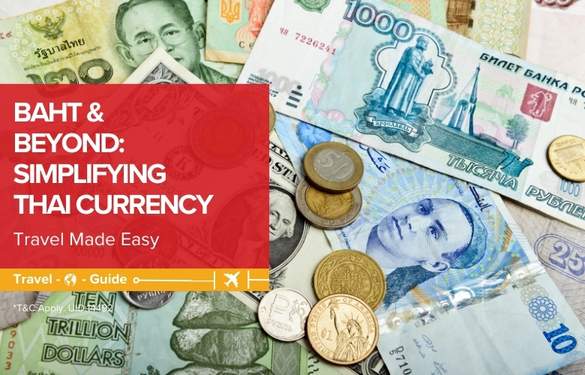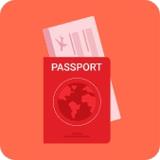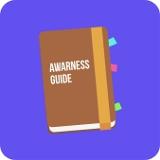

Thailand Currency
- Introduction
- What is the currency of Thailand?
- Why do I need to have Thailand currency?
- How to acquire Thailand's currency?
- Tips to save money when in Thailand?
- What are the payment methods accepted in Thailand?
- Can I use INR in Thailand?
- Take home Message
- FAQs
In addition to hotel and flight bookings, travellers interested in visiting Thailand must also learn how to use its local currency. The country has its own unique currency system, which you will need to use throughout your stay there. Go through this page to learn about the Thai local currency, its importance, where to obtain it, tips to save money, etc.
What is the currency of Thailand?
The official currency of Thailand is called the Thai Baht, and the Bank of Thailand is responsible for its issuance. It is denoted by the sign ฿ and code THB. A Thai Baht can be divided into 100 satangs, meaning 1 Baht = 100 satangs. As of now, the banknote denominations of Thailand's official currency include ฿20, ฿50, ฿100, ฿500 and ฿1000. In terms of coins, you will find 1, 5, 10, 25 and 50 satang, as well as ฿1, ฿2, ฿5 and ฿10 in circulation.
Why do I need to have Thailand currency?
Acquiring sufficient Thai currency becomes a basic necessity for your trip to Thailand. Here are some reasons for it;
- The primary form of payment: The Thai Baht is the official and the only form of payment accepted in Thailand. So, if you are planning on paying for goods and services in the country with other currencies, such as Euro or INR, you are out of luck.
- Hassle-free transaction: By paying with the Thai Baht, you won't have to worry about conversion rates or currency acceptance.
- Save yourself from hefty fees: Even if you find a few establishments that accept other forms of currency in Thailand, you will likely have to pay big conversion fees and service charges for it.
- Emergencies: In case of an emergency, you can easily use the local currency for making payments without stressing about whether it is accepted or not. The Thai Baht works at nearly all shops and establishments.
How to acquire Thailand's currency?
There are many ways you can get THB for your trip to Thailand. Some examples include;
- Banks: You can visit your local bank in your home country prior to the visit or check out the exchange services offered at the major banks in Thailand. The currency markup rate at banks is comparatively lower.
- Online forex services: Another efficient way to acquire THB for your Thailand trip is by using the services offered by online forex marketplaces. In this case, the conversion rate offered is quite decent, and you can obtain Thai Baht in both currency and forex card forms.
- Airport: There are tons of money exchange counters at international airports, where you can exchange or buy Thai Baht. However, in this scenario, the exchange rate is pretty bad, and the commission is also high.
- Local authorised exchange services: You can find several money exchange services offered by local authorised dealers in your home country as well as in Thailand. The conversion rate offered in this method generally follows competitive market standards, and there’s no bank involved.
- ATMs: Most ATMs in Thailand accept credit and debit cards, and the procedure of withdrawing money is relatively easy. Do note that when using ATMs to acquire Thai Baht, you may have to pay a withdrawal and foreign currency fees with every transaction, even if it is a minor one.
Tips to save money when in Thailand?
Following is a list of tips you can use to save money while travelling in Thailand;
- Pay with local currency: Paying with local currency will help you avoid additional transaction, conversion and service-related fees that you would normally have to incur when paying with a foreign currency.
- Save on accommodation: Ditch luxury stay options and consider affordable accommodation choices to save money. You can easily find cheap hotels and hostels across major cities in the country.
- Travel cards: In some places across Thailand, you can invest in a travel card that allows you to use local transport multiple times at cheaper rates. Some examples include Bangkok’s BTS Skytrain pass, MRT underground train travel pass, Chao Praya tourist boat one-day pass, etc.
- Save on transfers: Consider cheaper local transport alternatives to private taxis. Some examples include motorcycle taxis, tuk-tuks, songthaew, public buses, etc.
What are the payment methods accepted in Thailand?
For making payments for goods and services in Thailand, you get a lot of options to choose from. Some popular methods are;
- Cash: Cash is widely accepted across Thailand, from small shops to major businesses and establishments. However, there are a few downsides to using cash payments, such as the struggle of acquiring change on the go, the risk of running into a pickpocketer, etc.
- Cards: Card payments are also a popular form of transaction available in Thailand. You can use it to pay for goods and services at places like convenience stores, malls, restaurants, hotels, etc.
- Digital wallet: Digital wallets or e-wallets have become one of the leading forms of payment in Thailand.
- Forex cards: You can also use a prepaid single or multicurrency Forex card for making payments in Thailand. It is a popular and safer alternative to using cash, accepted across major establishments in Thailand.
Can I use INR in Thailand?
Unfortunately, Indian individuals travelling to Thailand for their trip won’t be able to use INR for making payments. INR is not accepted as legal tender in Thailand, and the only form of currency you have to use for transactions is the Thai Baht or THB. You can easily convert INR to THB in India prior to your trip or do so locally after arriving in Thailand.
Take Home Message
This concludes all the essential details about Thailand's currency that every tourist need to know about prior to their travel. It is best to use the local currency for making seamless payments in the country. This way, you can avoid sketchy individuals trying to scam you when using other currencies during your Thailand trip.
Faqs
1) How much is 1 INR and USD to THB?
As of 9th August 2023, 1 INR is equivalent to 0.42 Thai Baht. Whereas, 1 USD is equivalent to 35 THB.
2) Is it safe to carry cash or forex in Thailand?
Both carrying cash and forex are safe in Thailand. However, you should avoid carrying large amounts of cash on the street for reasons like robbery, theft, loss of wallet, etc. Try to keep most of your funds in the form of cards and withdraw cash when required.
3) Is it better to exchange currency before visiting Thailand?
It is advised to exchange currency before travelling to Thailand for better exchange rates.
4) What are the minimum funds required to enter Thailand?
Indian travellers will require at least 20,000 THB per person in order to apply for a Thailand visa.








 Health Insurance
Health Insurance  Travel Insurance
Travel Insurance  Car Insurance
Car Insurance  Cyber Insurance
Cyber Insurance  Critical Illness Insurance
Critical Illness Insurance
 Pet Insurance
Pet Insurance
 Bike/Two Wheeler Insurance
Bike/Two Wheeler Insurance  Home Insurance
Home Insurance  Third Party Vehicle Ins.
Third Party Vehicle Ins.  Tractor Insurance
Tractor Insurance  Goods Carrying Vehicle Ins.
Goods Carrying Vehicle Ins.  Passenger Carrying Vehicle Ins.
Passenger Carrying Vehicle Ins.  Compulsory Personal Accident Insurance
Compulsory Personal Accident Insurance  Travel Insurance
Travel Insurance  Rural
Rural 










